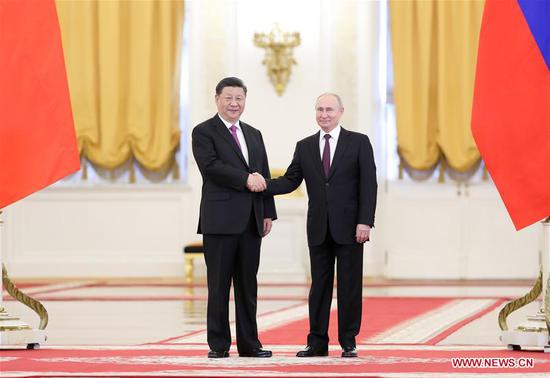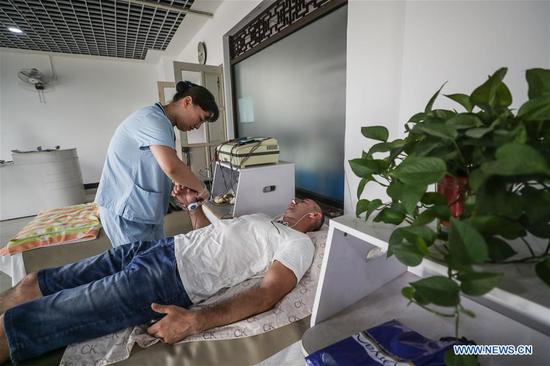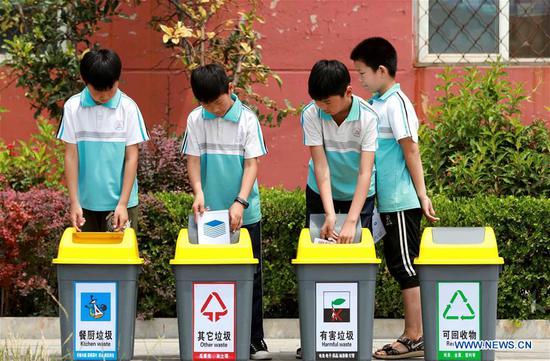According to Mi of Kay &Burton, more than 80 percent of the Australian firm's customers are Asian families with school-going children. From kindergartens to senior middle schools, all educational institutions are much sought after, stoking demand for homes in their neighborhood as well.
"Homes located in school areas are ideal investment for young parents because they can easily resell them later for a profit, or lease them out for stable returns in the future," said Dai of JC Pacific Capital.
A local resident, be it a homeowner or tenant, is eligible to apply for his or her children's admission into a U.S. public school in the local district, but private schools are generally considered to be better.
The U.S. has about 15,000 school districts with public schools ranging from kindergarten to 12th grade, or middle school, which are rated. Those rated high are expensive as they tend to collect fees toward property tax, building renovation, facility upgrades and teacher wage raises. The situation in the UK is comparable in this context.
In 2017, as many as 608,400 Chinese students studied abroad, a year-on-year growth of 11.74 percent. Chinese thus maintained their position as the largest overseas student group by nationality, according to data from China's Ministry of Education.
The U.S. remains the top destination for all international students. More than 363,341 Chinese students enrolled into U.S. universities and colleges in the academic year 2017-18, accounting for one-third of the total 1.09 million international students in the country, according to the Open Doors 2018 report on education and culture from the U.S. embassy in Beijing.
Inadequate opportunities for premium education in China, coupled with the new-found affluence of the middle-income group, are driving demand for overseas education, industry insiders said.
"Since China's opening-up, a growing number of Chinese parents who can afford overseas education for their kids, have been applying for school admissions in foreign countries, particularly developed countries with high-quality education and research resources," said Huang Jianru, an education industry expert with Xiamen University.
Carrie Law, CEO and director of Juwai, a Shanghai-based realty agency specializing in sales of overseas homes, said that Australia, the U.S., Canada, the UK, New Zealand and Singapore are the top six destinations for Chinese parents looking to buy a home for their kids bound for education abroad.
Wang of CBRE said the UK's policies to attract international students are paying off. Now, Chinese college entrance examination results are accepted by distinguished universities, including Cambridge University. As many as 99,700 students from China received UK visa in 2018, 13 percent more than the previous year, according to data from the British Home Office.
"English is a compulsory course at most Chinese schools since the Chinese opening-up, which is stoking demand for education and homes in English-speaking countries," said Huang.
Another reason is the perception that English proficiency will lead to more job opportunities and brighter future prospects globally, said Wang.
Amid all this rush for homes abroad, Chinese parents are becoming more cautious and rational in their investments, and underlining service. Mi of Kay &Burton said: "Instant decisions of the past have made way for well-considered choices preceded by viewings of four or five homes."
Those who expect hefty returns on overseas property investments made for children's education purpose might get disappointed. Mature markets like the U.S. and the UK will not see high-percentage growth year-on-year as there is not "enough growth potential in the foreseeable future", said Yu Ran, who just bought a three-bedroom flat in Melbourne.
The U.S.-China trade tensions, and the debate in the U.S. about immigration policies, will likely push some Chinese students to move to Canada and Australia from the U.S., according to Law of Juwai.
Experts noted the rising rejection rate of U.S. visa applications is likely to deflect more Chinese overseas students to other English-speaking countries. China's Ministry of Education said on June 3 that 13.5 percent of visa applications of government-backed students, submitted from January to March, were rejected by the U.S., a sharp rise from 3.2 percent in the same period last year.
This has been a trend in the past few months. Some U.S. student visas are issued with shorter validity period, affecting Chinese students' education plans. So, the latter should assess risks and prepare well before they decide to study abroad, said Xu Mei, spokeswoman of the Ministry of Education.


















































